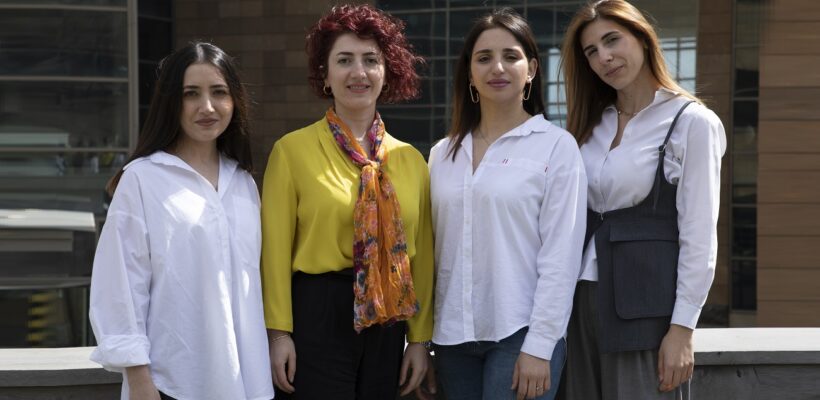
AUA Turpanjian College of Health Sciences Researchers Publish in ‘Vaccines’
2 min readYEREVAN, Armenia — Despite strong evidence demonstrating the safety and effectiveness of vaccines against COVID-19 and its serious health complications, the worldwide uptake of COVID-19 vaccines remains low, Armenia being no exception. The paper recently published by the Turpanjian College of Health Sciences (CHS) of the American University of Armenia (AUA) in Vaccines, a high-impact, peer-reviewed, open-access scientific journal affiliated with the American Society for Virology, delves into the viewpoints and experiences of healthcare providers and the public regarding COVID-19 vaccines.
The paper titled “Multi-perspective views and hesitancy toward COVID-19 vaccines: a mixed method study” suggests the reasons for the low uptake of the COVID-19 vaccine in Armenia. Knowledge gaps regarding COVID-19 vaccine development on the one hand, and consistent and targeted misinformation from media against COVID-19 vaccines on the other, might have triggered doubts and hesitancy among both healthcare providers and the general public. The wrong assumption that “the COVID-19 vaccines have not yet undergone proper testing” was among the most frequently cited arguments against the vaccine.
The paper is authored by Serine Sahakyan, R.N. (MPH ‘15), Natella Gharibyan, M.D. (MPH ‘21), Lusine Aslanyan, BS (MPH ‘18), Varduhi Hayrumyan, M.S. (MPH ‘16), Arusyak Harutyunyan, M.D. (MPH ‘09), Lorky Libaridian, M.D., and Zaruhi Grigoryan, B.S. (MPH ‘15). Publication of the research has benefited from AUA’s 2023 Professional Development Program.
The study also highlights the important role physicians play in patients’ decision-making, particularly when it comes to making the decision to get vaccinated. Hence, the inconsistency of physicians’ attitudes and practices as well as their role in relation to COVID-19 vaccination might have challenged Armenia’s progress toward greater acceptance of COVID-19 vaccination. Moreover, considering that the general public is exposed to news and communication from other countries, the inconsistency of messages from so many different sources has fueled distrust and hesitancy about vaccination.
The study suggests boosting efforts aimed at increasing vaccination rates by focusing on addressing the primary factors that contribute to vaccine hesitancy, including insufficient understanding among physicians of particular vaccines. Additionally, organized public awareness campaigns that provide clear information about the safety and efficacy of vaccines and the technologies used in their production should build trust in vaccines.
This research was conducted within the scope of the “Support to control COVID-19 and other infectious disease outbreaks” project. The project strengthens the national capacity to control COVID-19 and other communicable disease outbreaks and emergencies of potential public health concern advancing public health emergency preparedness and response strategy in Armenia. The project activities are funded by the United States Agency for International Development (USAID). The contents of this article are the sole responsibility of AUA and do not necessarily reflect the views of USAID or the United States Government.
The AUA Turpanjian College of Health Sciences works actively to improve population health and health services in Armenia and the region through interdisciplinary education and development of health professionals to be leaders in public health, nursing, health services research and evaluation, and health care delivery and management.
